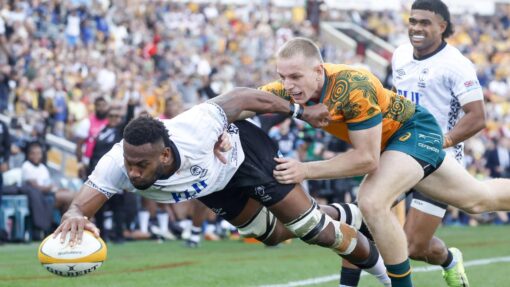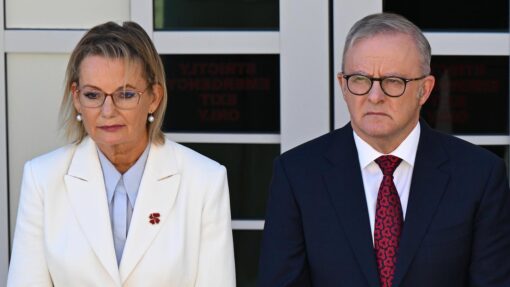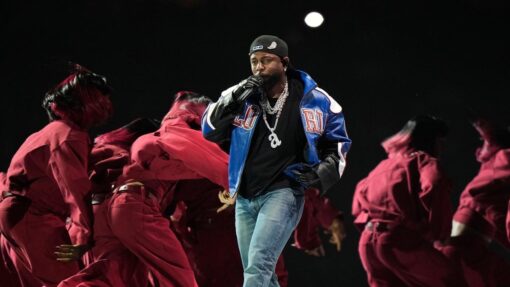Political turmoil mars Fiji post-election
Dominic Giannini |
Fiji’s kingmakers have decided to remain with a coalition government, dispelling Prime Minister Frank Bainimarama after 16 years in power.
The management board of the Indigenous-focused Social Democratic Liberal Party met again on Friday and decided to stay with its original decision to team up with the opposition People’s Alliance and National Federation Party to form government.
The nationalist FijiFirst government and the opposition coalition both held 26 seats in the expanded 55-member parliament, giving SODELPA – which won three seats – the balance of power.
SODELPA’s management board narrowly voted to side with the coalition 13 votes to 12 days after a first vote also agreed to the coalescence. The board had to meet again on Friday due to non-current members voting in the first ballot.
Leader Viliame Gavoka said democracy had won.
“We believe we have agreed on a way forward that benefits this country,” he said.
Former SODELPA leader Ro Teimumu Kepa said the party wouldn’t go through another meeting after the irregularities from the first were ironed out in the second.
The parties are working on a coalition agreement, which it hopes to have completed and signed by Wednesday.
But the political turmoil in Fiji is continuing in the nation marred by coups with Bainimarama so far refusing to concede the election and the military being called in to help police maintain law and order.
Bainimarama, Attorney-General Aiyaz Sayed-Khaiyum and Police Commissioner Sitiveni Qiliho cited incidents of stonings against Indo-Fijians as a rationale to request army intervention in maintaining law and order.
Little detail has been given about the purported racial targeting.
But prime minister-elect and People’s Alliance leader Sitiveni Rabuka took to Twitter to say senior police officials confirmed to him the stone-throwing accusations had been made up.
He branded Sayed-Khaiyum an anarchist for trying to trump up racial divisions.
“(Sayed-Khaiyum) is trying to set the nation alight along racial lines by claiming that racially motivated acts are occurring in Ba,” he wrote in a Friday morning post.
“He is lying.”
Both sides have called for calm.
Australian Prime Minister Anthony Albanese said he welcomed the democratic process and would work with whichever government is elected.
“It’s been an orderly process and we stand ready to work with whoever forms government in Fiji,” he said on Friday.
“That has some way to play out, but it has been an important part of our democracy as people get the right to vote.”
Local media is reporting Army Commander Major General Jone Kalouniwai as saying the military will abide by whatever the electoral outcome is and is urging others to do the same.
He said the army was only being used to support the police and was not taking charge.
But Fiji’s assistant police commissioner resigned after the army was called in to maintain law and order following political uncertainty.
The Fijian Police Force confirmed Abdul Khan’s departure in a Friday morning statement but said it was due to personal reasons, after local journalists cited sources that it was because he disagreed with the decision to bring in the army.
Tess Newton Cain, a Pacific expert at Griffith Asia Institute, said she understood Khan’s departure to be for the same reason.
“Yesterday’s decision to call on the military for assistance was certainly a very significant event and one that is concerning to a lot of people,” she told the ABC.
“Fiji has a fairly well-equipped and well-resourced policing outfit. It’s quite surprising they would feel the need to call on military assistance.”
New Zealand’s foreign ministry says it is closely monitoring the situation and is encouraging people to register their travel.
Indo-Fijians are using the hashtag FijiIsUnited, writing on social media, “I fall in the minority group in Fiji and I have felt completely safe in the lead up to elections, during elections and post-elections”.
Tensions between Indigenous Fijians – about 60 per cent of the population – and Indo-Fijians, the descendants of indentured Indian labourers who make up about one-third, have marred politics.
This article was made possible through the Melbourne Press Club’s Michael Gordon Journalism Fellowship Program.
AAP


